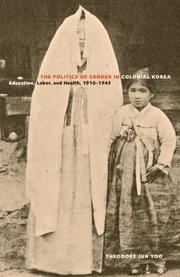| Listing 1 - 3 of 3 |
Sort by
|
Book
ISBN: 1282621297 9786612621291 1846156343 1855661756 Year: 2008 Publisher: Woodbridge, UK ; Rochester, NY : Tamesis,
Abstract | Keywords | Export | Availability | Bookmark
 Loading...
Loading...Choose an application
- Reference Manager
- EndNote
- RefWorks (Direct export to RefWorks)
The continuing importance of the Baroque in Spanish and Latin American culture. The Hispanic Baroque is a Janus-faced phenomenon, one of its faces peering at the sunset of feudalism, the other at the dawn of European modernity. This collection of essays seeks to engage with this paradox and its consequencesfor understanding Spanish and Latin American literary and cultural history. Conceived in response to Roberto González Echevarría's influential Celestina's Brood: Continuities of the Baroque in Spain and Latin America, and spanning many years of Beverley's own intellectual trajectory, it includes material already in the public domain, together with much that is new, previously unpublished or long unavailable. An Introduction outlines the ongoing scholarly discussion about the nature of the Baroque in both Spain and Spanish America. The essays deal respectively with Luis de Góngora's Soledades; the picaresque novel; the Baroque pastoral; Gracián's theory of "wit" andthe equation of wit and power; and the relation among Baroque writing, colonial hegemony, and the formation of a criollo culture in Spanish America. A section on Baroque historicism suggests some ways of using the Baroqueto reflect on our contemporary situation, and the volume concludes with a wide-ranging conversation about the Baroque and Hispanism between the author and Fernando Gómez Herrero, a young scholar strongly influenced by postcolonialstudies. JOHN BEVERLEY is Professor of Spanish and Latin American Literature and Cultural Studies at the University of Pittsburgh.
Spanish literature --- Baroque literature --- History and criticism. --- Baroque Writing. --- Colonial Hegemony. --- European Modernity. --- Hispanic Baroque. --- Latin American Culture. --- Spanish Literature.
Multi
ISBN: 9781855661684 1855661683 9781800105324 1855663252 1800105320 Year: 2008 Publisher: Woodbridge Tamesis
Abstract | Keywords | Export | Availability | Bookmark
 Loading...
Loading...Choose an application
- Reference Manager
- EndNote
- RefWorks (Direct export to RefWorks)
A Companion to "Lope de Vega" brings together work by leading international scholars on the life and writing of Lope de Vega Carpio, the 'fenix de los ingenios', a 'monstruo de la naturaleza', as he was described by his rival, Miguel de Cervantes. Spain's foremost Golden Age playwright was in addition a major artist in prose and poetry, genres also covered by the Companion. The contributions evaluate current critical debates and issues in Lope de Vega studies, as well as providing new readings of key texts. The volume attempts to do justice to the variety, profusion and originality of Lope's output, and to outline the contours of his reputation as an artist in literary history, as well as firmly contextualising his life and work. The variety of critical perspectives reflects the liveliness of debate surrounding this enduringly popular figure whose drama has recently enjoyed a renaissance in theatres around the globe.
Vega Carpio, de, Lope Felix --- Authors, Spanish --- Vega, Lope de, --- Vega, Lope de Carpio, --- Carpio, Lope Félix de Vega, --- Vega y Carpio, Lope Félix de, --- Vega Karpio, Lope Phelix de, --- Burguillos, Tomé de, --- Vega Carpio, Lope Félix de, --- Karpio, Lope Phelix de Vega, --- De Vega, Lope, --- De Vega Carpio, Lope Félix, --- De Vega y Carpio, Lope Félix, --- De Vega Karpio, Lope Phelix, --- De Burguillos, Tomé, --- De Carpio Vega, Lope, --- Carpio Vega, Lope de, --- Ṿegah, Lopeh deh, --- וגה, לופה דה, --- Colonial Hegemony. --- Criollo Culture. --- Golden Age Dramatist. --- History. --- Literature. --- Lope de Vega. --- Playwright. --- Spanish Culture. --- Spanish Theatre. --- Theater.

ISBN: 1282359339 9786612359330 0520934156 9780520934153 0520252888 9780520252882 9781282359338 Year: 2008 Publisher: Berkeley University of California Press
Abstract | Keywords | Export | Availability | Bookmark
 Loading...
Loading...Choose an application
- Reference Manager
- EndNote
- RefWorks (Direct export to RefWorks)
This study examines how the concept of "Korean woman" underwent a radical transformation in Korea's public discourse during the years of Japanese colonialism. Theodore Jun Yoo shows that as women moved out of traditional spheres to occupy new positions outside the home, they encountered the pervasive control of the colonial state, which sought to impose modernity on them. While some Korean women conformed to the dictates of colonial hegemony, others took deliberate pains to distinguish between what was "modern" (e.g., Western outfits) and thus legitimate, and what was "Japanese," and thus illegitimate. Yoo argues that what made the experience of these women unique was the dual confrontation with modernity itself and with Japan as a colonial power.
Sex role --- Women --- Gender role --- Sex (Psychology) --- Sex differences (Psychology) --- Social role --- Gender expression --- Sexism --- Human females --- Wimmin --- Woman --- Womon --- Womyn --- Females --- Human beings --- Femininity --- History --- Social conditions --- Korea --- Japan --- Women - Korea - Social conditions - 20th century --- Sex role - Korea - History - 20th century --- Korea - History - Japanese occupation, 1910-1945 --- Gender roles --- Gendered role --- Gendered roles --- Role, Gender --- Role, Gendered --- Role, Sex --- Roles, Gender --- Roles, Gendered --- Roles, Sex --- Sex roles --- colonial hegemony. --- colonial power. --- comfort women. --- family. --- feminists in asia. --- gender women studies. --- generational. --- japan korean relations. --- japanese colonialism. --- korean feminist. --- korean history. --- korean women. --- life changes. --- life lessons. --- modernity. --- pervasive control. --- political roles. --- public discourse. --- radical transformation.
| Listing 1 - 3 of 3 |
Sort by
|

 Search
Search Feedback
Feedback About UniCat
About UniCat  Help
Help News
News